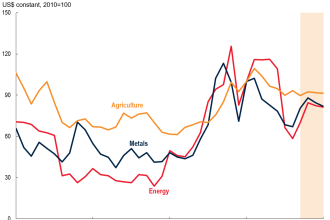In today’s fast-paced and competitive business environment, companies are constantly seeking ways to optimize their operations and reduce costs. For businesses that rely on vehicle fleets, such as delivery services, logistics companies, and transportation providers, managing and maintaining these fleets can be a significant expense. However, with the advent of advanced technologies and the rise of “Automotive Data Solutions,” businesses now have access to a wealth of data that can help them make more informed decisions and streamline their operations. In this blog, we will explore how businesses can leverage automotive data solutions to cut costs in key areas such as maintenance, fuel consumption, insurance, and downtime.
- Understanding Automotive Data Solutions
- Reducing Maintenance Costs with Predictive Analytics
- Optimizing Fuel Consumption Through Data Insights
- Lowering Insurance Premiums with Telematics
- Minimizing Downtime with Real-Time Monitoring
- Enhancing Fleet Management Efficiency
- Leveraging Big Data for Strategic Decision-Making
- Conclusion: Embracing Automotive Data Solutions for Cost Savings
Understanding Automotive Data Solutions
Before diving into the specific ways in which automotive data solutions can help reduce operational costs, it’s important to understand what these solutions entail. Automotive data solutions encompass a range of technologies and tools that collect, analyze, and interpret data from vehicles. This data can include information on vehicle performance, driver behavior, fuel consumption, maintenance needs, and more. By leveraging this data, businesses can gain valuable insights into their fleet operations and make data-driven decisions to optimize efficiency and reduce costs.
Reducing Maintenance Costs with Predictive Analytics
One of the primary ways that automotive data solutions can help businesses reduce operational costs is through predictive maintenance. Traditional vehicle maintenance often relies on scheduled check-ups or reactive repairs, which can be costly and inefficient. However, with the use of automotive data solutions, businesses can implement predictive analytics to anticipate maintenance needs before they become major issues.
Predictive maintenance uses real-time data from vehicles, such as engine performance, brake wear, and tire pressure, to identify potential problems early. For instance, if a vehicle’s data indicates that the engine is overheating or the brakes are wearing out faster than expected, the fleet manager can proactively schedule maintenance to address the issue before it leads to a costly breakdown. This not only helps to reduce repair costs but also minimizes vehicle downtime, ensuring that the fleet remains operational and productive.
Optimizing Fuel Consumption Through Data Insights
Fuel consumption is another major expense for businesses with vehicle fleets. Automotive data solutions provide valuable insights into fuel usage patterns, allowing businesses to optimize fuel consumption and reduce costs. By analyzing data on factors such as driving behavior, route efficiency, and vehicle idling times, companies can identify areas where fuel is being wasted and implement strategies to improve fuel efficiency.
For example, automotive data solutions can track driver behavior, such as harsh acceleration, speeding, and excessive idling, which can contribute to higher fuel consumption. By providing drivers with feedback and training based on this data, businesses can encourage more fuel-efficient driving habits. Additionally, route optimization algorithms can analyze traffic patterns, road conditions, and delivery schedules to determine the most fuel-efficient routes, reducing unnecessary mileage and fuel costs.
Lowering Insurance Premiums with Telematics
Insurance is a significant cost for businesses with vehicle fleets, and insurance premiums are often based on factors such as vehicle type, driving history, and location. However, automotive data solutions, particularly telematics, can help businesses lower their insurance premiums by providing insurers with detailed data on vehicle usage and driver behavior.
Telematics systems collect data on factors such as speed, braking, acceleration, and location, allowing insurers to assess the risk profile of each driver and vehicle more accurately. By demonstrating that their fleet operates safely and efficiently, businesses can negotiate lower insurance premiums with their providers. Additionally, some insurers offer usage-based insurance (UBI) programs that use telematics data to calculate premiums based on actual vehicle usage, which can result in significant cost savings for businesses with lower-risk fleets.
Minimizing Downtime with Real-Time Monitoring
Vehicle downtime is a costly issue for businesses that rely on their fleets for daily operations. Unplanned downtime can result from unexpected breakdowns, accidents, or maintenance needs, leading to lost productivity and revenue. Automotive data solutions can help minimize downtime by providing real-time monitoring and alerts for potential issues.
With real-time data from vehicles, fleet managers can monitor the health and performance of each vehicle in their fleet. If a vehicle exhibits signs of trouble, such as a sudden drop in fuel efficiency or abnormal engine temperature, the system can send an alert to the fleet manager, allowing them to take immediate action. This proactive approach helps prevent minor issues from escalating into major problems that require lengthy repairs and downtime. Additionally, by optimizing maintenance schedules based on actual vehicle usage and condition, businesses can ensure that their vehicles are in peak operating condition, further reducing the risk of unexpected downtime.
Enhancing Fleet Management Efficiency
Automotive data solutions not only help reduce costs in specific areas but also enhance overall fleet management efficiency. By providing a centralized platform for monitoring and managing all aspects of fleet operations, these solutions enable businesses to make more informed decisions and optimize their resources effectively.
For example, fleet management software integrated with automotive data solutions can provide a comprehensive overview of vehicle status, driver performance, fuel consumption, and maintenance needs. This holistic view allows fleet managers to identify trends, track key performance indicators (KPIs), and implement strategies to improve overall fleet efficiency. Additionally, by automating routine tasks such as scheduling maintenance and generating reports, businesses can save time and reduce administrative costs, allowing them to focus on more strategic initiatives.
Leveraging Big Data for Strategic Decision-Making
The data generated by automotive data solutions is not just limited to day-to-day operations; it can also be leveraged for strategic decision-making. By analyzing historical data and identifying patterns, businesses can gain valuable insights into long-term trends and make data-driven decisions to optimize their fleet operations.
For instance, data analysis can reveal which vehicles in the fleet are the most cost-effective in terms of fuel efficiency, maintenance costs, and overall performance. This information can be used to guide future purchasing decisions, ensuring that businesses invest in vehicles that offer the best return on investment. Additionally, data on driver behavior and performance can help businesses develop targeted training programs to improve driver safety and efficiency, further reducing costs associated with accidents and insurance claims.
Conclusion: Embracing Automotive Data Solutions for Cost Savings
In conclusion, automotive data solutions offer businesses a powerful tool to reduce operational costs and optimize fleet management. By leveraging data-driven insights, businesses can implement predictive maintenance strategies, optimize fuel consumption, lower insurance premiums, and minimize downtime, all of which contribute to significant cost savings. Additionally, these solutions enhance overall fleet management efficiency, allowing businesses to make more informed decisions and improve their bottom line.
As the automotive industry continues to evolve, businesses that embrace automotive data solutions will be well-positioned to stay ahead of the competition and achieve sustainable growth. Whether you are a logistics company looking to optimize your delivery routes or a transportation provider seeking to reduce fuel costs, automotive data solutions provide the insights and tools needed to drive operational excellence and cost savings.















